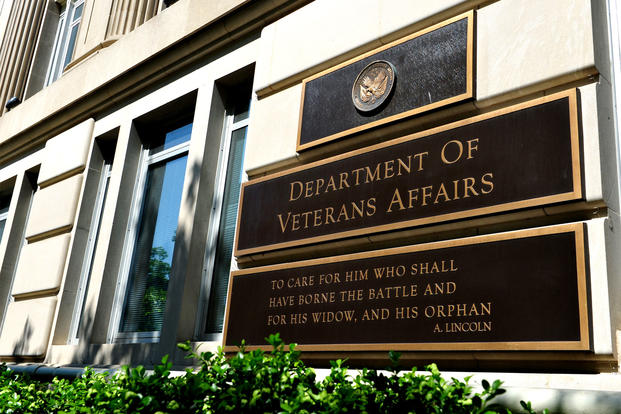Four spouses and two fiancées of veterans eligible for the Department of Veterans Affairs' family caregiver program have filed a lawsuit against the VA for denying or improperly revoking their benefits.
In a suit filed Jan. 22 in the U.S. Court of Federal Claims, the plaintiffs, led by Florida resident Zamantha Tapia, fiancée of Army veteran Cesar Silva, allege that the VA did not follow the laws and regulations governing the department's Comprehensive Assistance for Family Caregivers program, which provides compensation and health benefits to those who provide care for seriously injured post-9/11 veterans.
According to the suit, Silva and Tapia's application was denied, and the benefits of the other plaintiffs were inappropriately downgraded or terminated without proper investigation or determination.
In 2017, veterans and their caregivers enrolled in the program began seeing their benefits curtailed or terminated -- often with no reason given, other than that their VA providers determined they no longer needed help with their daily activities.
In August 2018, the VA Office of Inspector General found that across the VA, facilities didn't adequately manage the program, failing to provide consistent access to it, improperly accepting ineligible veterans and declining to monitor the health statuses of nearly half the veterans it discharged from the program.
The IG also learned that the department paid out $4.8 million to caregivers of veterans who weren't eligible for the program, and the VA "failed to manage the program effectively because it did not establish governance that promoted accountability for program management," staff members wrote in the report.
Related: VA Suspends all Discharges from Caregiver Program
In 2015, plaintiff Jennifer Wilmot and her husband George Wilmot, an Army National Guard veteran who served from October 2007 to May 2013, were booted from the program.
Wilmot had been injured during a 2009 deployment to Mosul, Iraq, when the Humvee he was riding in came under small-arms fire and crashed. He suffered a traumatic brain injury, fractured portions of his back and pelvis and nearly lost his left arm. He also has post-traumatic stress disorder and memory loss.
The Wilmots were accepted into the caregiver program in 2013 but should have received the highest level of compensation rather than the level they were awarded, according to attorneys Jason Perry and Luke Miller.
Then came the dismissal.
"After completing a comprehensive review of your medical records, it appears that you have met the intention of the program and your participation will be discontinued," VA officials wrote to the Wilmots.
The lawsuit calls the termination "arbitrary and capricious."
Silva was deployed to Iraq from November 2003 to August 2004, sustaining shrapnel injuries in an attack. According to the lawsuit, he received a VA disability rating of 70 percent in 2009 for rotator cuff strain and impingement and suffers from chronic headaches, degenerative joint disease, back pain and neuropathy. He also has PTSD, TBI, memory loss, depression and irritable bowel syndrome.
Tapia and Silva applied for the family caregiver program in 2014 but were denied. According to the suit, the VA found that Silva did not need assistance for physical injuries and said his mental health conditions were not service-connected. They reapplied in 2017, but following a phone assessment, VA officials said that Silva was not "receiving medical treatment" -- an error, the lawsuit alleges -- and that Tapia was "an enabler."
According to Perry, an attorney in Wellington, Florida, and Miller, of Military Disability Lawyer LLC in Salem, Oregon, the plaintiffs have asked the court to certify the suit as a class action, meaning that other affected caregivers could sign on if it is approved.
They estimate that the VA received more than 100,000 applications for the family caregiver program between May 2011 and September 2018 and, therefore, thousands may be able to sign on to the possible class action.
The plaintiffs also are requesting that the VA stop what they perceive as arbitrary dismissals from the program and are seeking monetary compensation in an amount "to be determined at trial," according to the suit.
The federal government has until March 25 to file a response in the case, and a status conference is scheduled for March 29, according to court documents.
-- Patricia Kime can be reached at patricia.kime@military.com. Follow her on Twitter @patriciakime.












